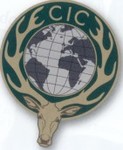
Rt. Hon. Theresa Villiers MP Secretary of State at the Department for Environment, Food and Rural Affairs
Rt. Hon. Zacharias Goldsmith MP Minister of State at the Department for Environment, Food and Rural Affairs and at the Department for International Development Affairs
Seacole Building2 Marsham StreetLondon, SW1P 4DFc/o Katie Beckett:This email address is being protected from spambots. You need JavaScript enabled to view it.;Sharon Watkins:This email address is being protected from spambots. You need JavaScript enabled to view it.
Subject: Involving Range Country Governmentsas part of Consultations on Proposed Ban on the Import of Legally Hunted Wildlife
Rt. Hon. Theresa Villiers MP,
Rt. Hon. Zacharias Goldsmith MP,
The International Council for Game and Wildlife Conservation (CIC) has recently learned that the UK Government plans to conductan urgent consultation on a potential ban on the importation of legally hunted wildlife. We are greatly concerned about the conservation and livelihood ramifications of any such ban. We note that such a ban was set to bedebated at the recent Conservation and Unionist party conference. Despite the best intentions of the proponents of the ban, it is likely to cause serious damage to wildlife populations, especially in sub-Saharan Africa. We strongly recommend that, as an essential component of your consultation, you engage the relevant Ministries and Departments responsible for wildlife management in the countries that manage the wildlife that will be heavily affected by any potential importation ban. Given the socio-economic and ecological importance of hunting for many Southern African Development States (SADC), consultations should involve at least the Governments of Botswana, Mozambique, Namibia, South Africa, Tanzania, Zambia and Zimbabwe. We recommend that you invite Government Officials from these countries as well as members of rural communities who live on the front line with wildlife to visit the UK so that they can share information about their conservation and livelihood programs and the role that sustainable hunting plays in them. In particular, we recommend that you consult with the same Government Officials and rural communities about the impacta UK importation ban will have on the success of their conservation efforts. The world is fraught with misinformation, as evidenced by a recent CIC article on the 3% figure that is often quoted as the level of revenues from hunting ending up in local communities. The article is annexed to this letter. Where better to get accurate information than first-hand from those living and dealing with a given issue? Even better,and as means of showing these Governments that the UK truly cares about their wildlife and their people, it would be valuable for representatives of the UK Government to visit these countries to witness for themselves the important role that hunting plays in wildlife and habitat conservation, anti-poaching efforts, empowering communities and engaging the min the conservation of wildlife. We recognize that those who propose an importation ban do so with the intention of benefitting wildlife conservation. However, without proper consultation with those who manage the wildlife that will be affected by these bans, the actions of even the most well-intentioned decision-makers will cause far more harm than good to the world’s wildlife and the livelihoods of those living with it. We also recognize the controversy surrounding the use of hunting as a conservation tool, with Zac Goldsmith MP describing hunting of “endangered animals” as“morally indefensible”. On this note, 133 wildlife experts recently,in a letter to SCIENCE Magazine, acknowledged that such emotions exist. Some even admitted their personal discomfort with hunting, yet they placed scientific evidence oversubjective sensitivities to recognize the importance of hunting for wildlife conservation and livelihoods. They noted that a “conservation policy that is not based on science threatens habitat and biodiversity and risks disempowering and impoverishing rural communities.” The authors also advised Governments not to take actions that would undermine existing well-managed hunting programs. In the words of Zac Goldsmith MP:“By placing a higher value on animals alive rather than dead, we will begin to turn back the tide of extinction.”This is the principle on which modern day, well-regulated, sustainable hunting works. It underlies the principles of sustainable useand is the reason wildlifenumbers increase where it is practiced. Can one morally defend a proposed ban when scientific evidence suggests that it will cause serious damage to wildlife populations and the livelihoods of those living with them?In summary, we recommend thatUK Government decision-makers take no action concerningwildlife importation bans without first consulting with Governments and affected communities from the countries whose wildlife will be affected; invite Government Officials and rural representatives from those countries to the UK to share information about their conservation programs, the role that hunting plays in those programs and the harms that a UK importation ban could cause; and visit those countries to personally witness their successful conservation programs. Please let us know if we can be of any further assistance in obtaining the necessary information that will demonstrate how the UK Government can avoid causing the harms you are attempting to remedy. Please contact Tamás Marghescu, CIC Director General This email address is being protected from spambots. You need JavaScript enabled to view it., for additional information or for answers to any questions you have about this letter.
Yours sincerely,
George Aman
President of the CIC



